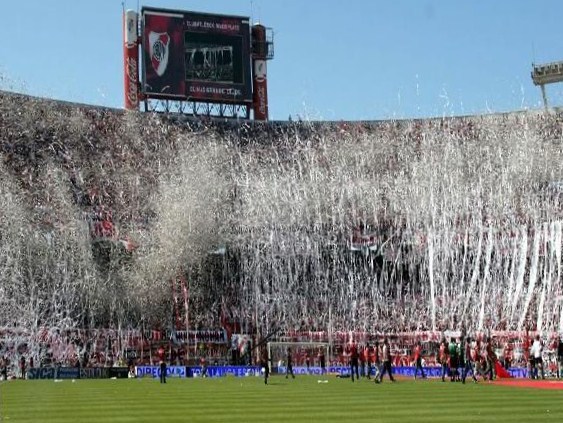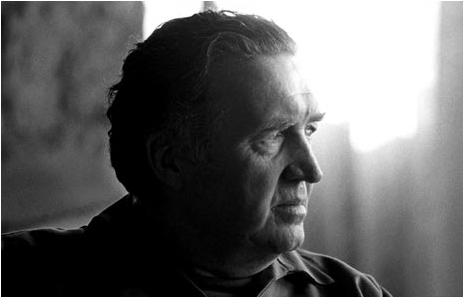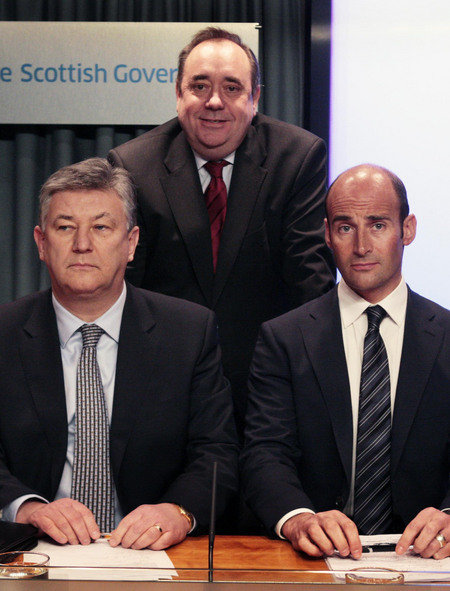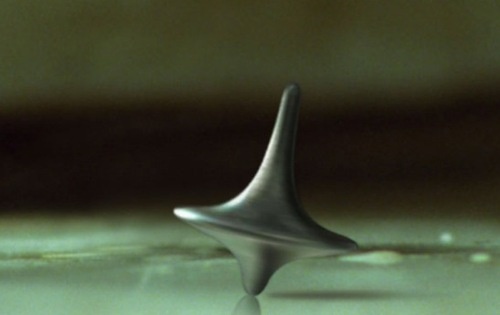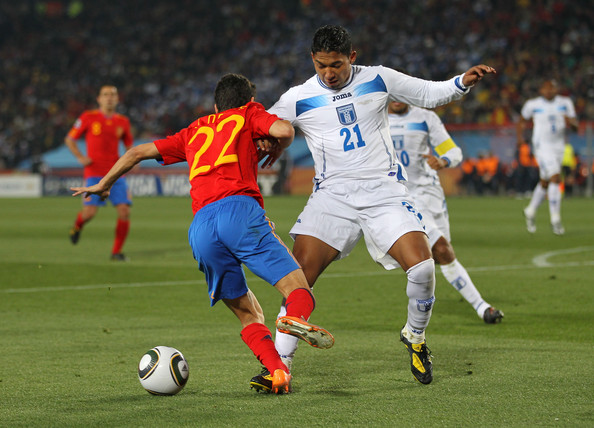For months preceding the elections, Buenos Aires was covered in billboards and posters promoting various applicants for the presidency of the club. Television commercials promoting their respective campaigns filled the ad-breaks, whilst journalists and pundits discussed the various merits of the candidates on both news and sports programmes. The more prominent of which gave numerous interviews to the largest newspapers, television channels and radio stations in the country.
Both D’Onofrio and Passarella attempted to sign David Trezeguet and Mauro Camoranesi, (both of whom grew up in Argentina as River fans) in order to promote their respective campaigns. However, more important for Passarella was his mantra that River Plate should be a European club off the pitch and to be a South American club on it i.e. maximising the commercial and merchadising potential of the club, whilst developing and producing the world’s best young players from their academy.
Similarly, D’Onofrio, a well known businessman in Argentina, wanted to improve the commercial side of River, however it was reckoned that his campaign suffered a blow when River legend Enzo Francescoli mysteriously withdrew his support from the D’Onofrio campaign shortly before the vote. The candidate who finished third, Antonio Caselli, chose to focus much of his campaign on the redevelopment of the legendary ‘El Monumental’ stadium.
But why is such importance given to the presidential elections of a football club, by the media, the fans and the candidates themselves? Well, firstly it should be understood that football clubs in Argentina have a different structure to those in Britain; whereas our clubs are essentially profit seeking businesses, in Argentina they are social and sporting clubs that do not intend to make any profit (nor any loss, of course). The socios (members) pay monthly fees into the club, which the administrators have a responsibility to distribute to the various parts of the club.
Consequently, the manifestos of presidential candidates may vary greatly, with candidates emphasising various aspects of the club to different degrees such as youth development, the building and restoration of the club’s facilities, investment in the first team or perhaps a change in the marketing of the club. Therefore, the socio (member) of the club can have a direct and tangible influence on his club with his democratic vote. His vote is just as important as the vote of his fellow supporter who rents an executive box each season; one member, one vote.
Whether we like it or not, the position of the Chief Executive in a Scottish football club is not to provide the fans with a winning team. His responsibility is to the shareholder of the company. Obviously, there is an overlap is some instances, as a successful first team may reflect in high merchandise sales, prize money and ticket sales, but his ultimate responsibility is to the shareholder of the company and as a consequence it is the Chief Executive’s duty within the company to maximise profit for that shareholder.
Decisions may be taken for investment in the first team in order for greater success, which may equal greater profit for the shareholder, however equally, decisions may be taken to not invest and to sell if it is believed that the investment will unduly risk shareholder dividends. Regardless of team performance the end is always the same; to make the shareholder a profit. For this reason, the Chief Executive contract usually will have bonuses for profit and rarely for success on the field, which may seem like an anathema to the supporter of the club, but is a natural consequence of the football club being a profit seeking company.
In Argentina, however, the clubs are not profit seeking, but are social sporting clubs and consequently their ultimate responsibility is to provide their club with sporting success and good sporting facilities for the use of their members. Success in these areas, inevitably gives a club President a great platform for further political ambitions. This is especially the case if that success has arisen in a club of the size of Boca Juniors or River Plate, which was described by their President, Daniel Passarella, as a ‘mini-country’. The club probably has more fans than Scotland or Ireland has inhabitants.
At FC Barcelona, a club that is also member-owned, Joan Laporta is known across the world solely because he was the club’s President. That platform will have undoubtedly aided his political ambitions; he is now President of Solidaritat Catalana, a Catalonian independence party. Likewise, Ex-Boca Juniors President Mauricio Macri presided over Boca’s golden period in the late 90’s into the beginning of the 21st century. The prominence and recognition of his success at Boca has enabled him to attain of high public profile throughout Argentina. He is now in charge of the city of Buenos Aires and will head the opposition to President Kirchner in this year’s general election in Argentina.
It is this interrelationship between football and democratic elections that gives politics such an important place in Argentine football and indeed football within Argentine politics. No doubt in 2011, the news in Argentina will be dominated by the forthcoming elections…of the country and also of Boca Juniors.
Next Article: The preview to the Clausura Championship

